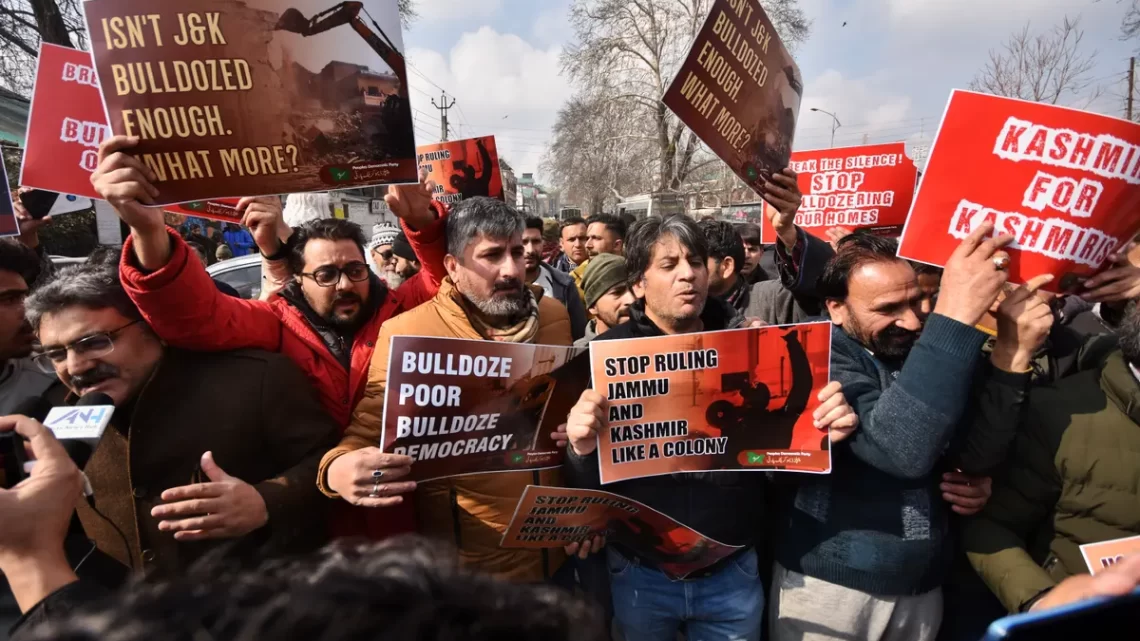
India Continues Seizing Property of Kashmiris in IIOJK
March 12, 2024Under Modi’s rule, India is continuing a troubling trend of depriving Kashmiris of their properties, with the recent seizure of 11 properties valued at billions of rupees in Srinagar, occupied Jammu and Kashmir, by the Enforcement Directorate (ED). According to the reports, the ED justified its actions by citing an alleged bank fraud.
The spokesperson for the investigating agency announced, “The ED has provisionally attached immovable properties worth crores, including 18 kanals of land and buildings, owned by Isfaq Ahmad Zargar, Khalil Ahmad Mughal, Asaraf Dev, and Sayed Kaushar Niyazi, in a bank fraud case.” This move comes as a result of an investigation initiated from an FIR filed by the Maisuma Police Station in Srinagar, concerning a purported loss to Canara Bank’s Budshah Chawk Branch.
However, this development has sparked concerns among experts who question India’s strategy of attaching properties under the guise of social crimes. Dr. Ali, a political analyst specializing in South Asian affairs, expressed his apprehensions, stating, “India’s tactic of attaching properties on the pretext of social crimes marks a dangerous escalation in its treatment of Kashmiris.”
He further emphasized that such actions exacerbate tensions in the region and indicate a broader pattern of systemic discrimination against Kashmiri Muslims. The use of property seizures in response to alleged social crimes raises questions about the government’s intentions and its impact on the already fragile situation in Kashmir.
The ED’s investigation and subsequent property seizures highlight a growing concern for human rights, as critics argue that these actions may disproportionately affect the Kashmiri Muslim population. Critics point to a pattern where social crimes are used as a pretext to target specific communities, reflecting a discriminatory approach that undermines the principles of justice and equality.
The international community has a role to play in addressing these concerns and urging India to adhere to human rights standards. As tensions rise in the region, there is a need for transparent and impartial investigations, ensuring that the rights of all individuals are protected, irrespective of their religious or ethnic background.
To conclude, India’s continued trend of seizing properties in Kashmir under the pretext of social crimes is a matter of growing concern. The international community should closely monitor the situation, urging India to uphold human rights principles and ensure justice is served without discrimination.

